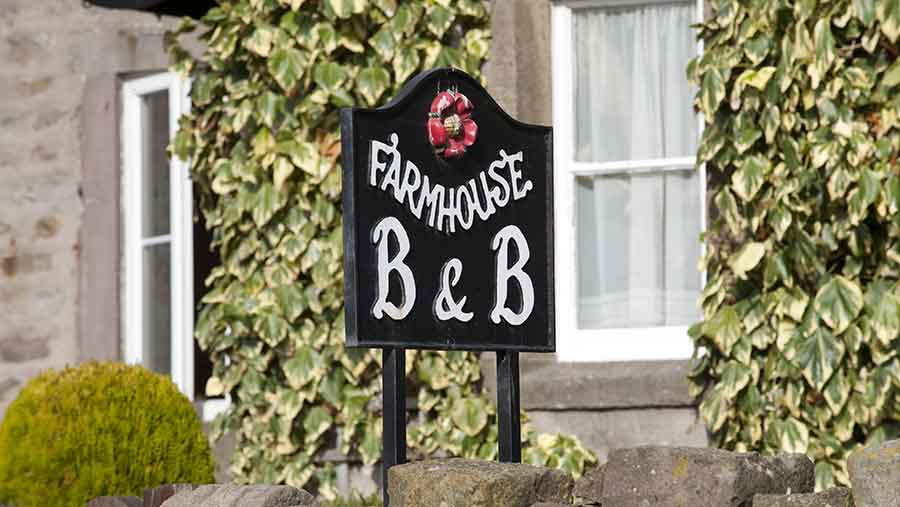10 tips for marketing on-farm holiday accommodation
 © FLPA/Rex Shutterstock
© FLPA/Rex Shutterstock Setting up on-farm holiday accommodation, in the form of bed and breakfast or self-catering cottages, is a popular choice of diversification. Getting the holiday let or hotel room ready for guests can be no mean feat in itself, but once it’s ready for guests, you have to market it.
At the 2015 Farm Business Innovation Show, Andy Woodward, chief executive of Farm Stay UK, a not-for-profit farmer owned co-operative, shared his top 10 recommendations for marketing holiday accommodation.
1. Photography, photography, photography
“The first thing I would do is take some really nice pictures,” says Andy, who advises all owners to put some money aside to buy a decent camera or pay a photographer. “Put some open magazines in the shot, or a glass of wine, to bring a sense of friendliness in to a room”.
2. Share the experience through a video
A video is a good way of sharing the experience of a stay at your accommodation. “Show the experience though, not a guided tour of the bathroom,” says Andy. It doesn’t have to be super professional, just interesting.
3. Spend money on a good website
The website needs to be mobile friendly and have instant information regarding availability as well as an online booking system. “Showing people you are not available is as important as when you are available because you don’t want people to have a bad experience,” said Andy, who advises not to enter into protracted negotiations about booking over email, especially because some holiday visitors might be from a different time zone.
As well as having a booking engine set up on your own website, it is important to connect it to other sites you feature on, such as farmstay.co.uk or booking.com. There are free options available, such as:
SuperControl
GuestLink
4. Social media
Make sure you are capitalising on all buttons and calls to action. On Facebook, you can put a “Book Now” button that will connect directly to your booking engine.
Don’t duplicate content across different channels. It’s a bad user experience and it will hinder your google ranking. “My rule is to write your blog, refer to it from Facebook and promote a link to it on Twitter,” says Andy.
5. Don’t get them lost before they arrive
It’s important to give accurate directions. Sometimes postcodes can cover a big patch in a rural area, so make sure you give some clear instructions. Go out and drive the route to your own property, so that you understand the directions needed.
6. Sleep in every bed at least once a year
People won’t always tell you about the small things that might hinder a stay, a dripping tap or a creaky bed. When the room is unoccupied, go and sleep in it yourself, so that you can check everything is working and comfortable.
7. Have clear T&Cs & Rules of Engagement
Share Terms and Conditions with guests before they arrive. Send them when the booking is agreed. If the contract is there in black and white then there needn’t be any confusion about payment terms or cancellation policies.
Likewise, with Rules of Engagement, give guests a heads up about anything they need to know before the visit. Especially on a working farm, sometimes there will be additional noises or fields that aren’t suitable for walking. “Don’t let them come along and then say ‘you can’t do this, you can’t go there’, give them a bit of a briefing up front,” says Andy.
8. Ensure you have insurance
Simple. Make sure you are covered.
9. Getting press coverage
A new cottage is not news, so you have to think outside the box if you want coverage. “I call it the inverse law of PR,” says Andy. “The wackier the idea, the more likely it is to get picked up.”
10. Don’t go it alone
Speak to your Local Tourism Agency, who can help you promote your accommodation and join thematic groups, like Farm Stay UK, Canopy and Stars and Campsites.co.uk
Also use quality assessment schemes – they will help you ensure your property is top notch, give you more of an idea about guest expectations and help you market your place.





